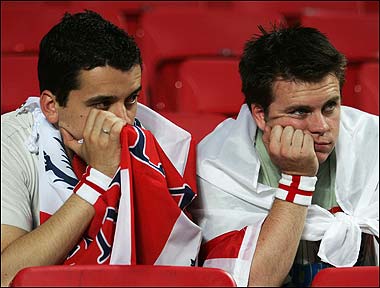SOME students have been asking me about economics books they can read in order to help their university applications.
Here are some recommendations:
1. Predictably Irrational by Dan Ariely
This is a book about "behaviourial economics", the use of experiments and theories from psychology to better understand economic behaviour. This book challenges traditional economic ideas about how we make economic decisions. It's also very funny!
2. Ship of Fools by Fintan O'Toole
This book discusses the rise and fall of the Irish economy over the 1990s and 2000s. The country was praised around the world as the best example of how deregulation, low taxes and foreign investment could led to very high growth rates. Before it all went spectacularly wrong during the Credit Crunch. It's GDP has fallen by 14% between 2008 to 2010, and has the world's highest debt to other countries - equivalent to 811% of GDP. This book argues the stupidity and greed of Ireland's politicians and business leaders caused this.
3. The Storm: The World Economic Crisis and What It Means by Vince Cable
Vince Cable is currently the Miinster for Trade in the UK government. He was one of the few people to warn about the problems that eventually dragged this country into the Credit Crunch. This is a short and readable account of those events.
4. The Death of Economics by Paul Ormerod
This book was written some time ago, but is still excellent. It is good for those students who also know some maths. The central idea of the book is how the maths and stats used in making economic forecasts is wrong, and how this has led to completely wrong decisions and theories.
If you would like some more suggestions, here is a longer list from tutor2u:
http://www.tutor2u.net/blog/index.php/economics/comments/revised-reading-list-for-economists-post-as-papers/#extended
Monday 27 September 2010
No 147: Don't live here!
A NEW survey claims that the UK is the second-worst European country to live in .
http://www.uswitch.com/news/money/uk-worst-place-to-live-in-europe-uswitch-quality-of-life-index-890419/
According to the article:
"People in the UK pay the highest prices for food and diesel, yet the government spends below the European average (as a percentage of GDP) on health and education. We also work longer hours, retire later, receive less annual leave than most of our European counterparts and get less sunshine along the way – not to mention the fact that we can expect to die two years younger than our French counterparts."
Therefore the message to you would appear to be: get your excellent university degree from the UK, but don't stay here afterwards!
However, as usual, a closer look at the statistics is interesting, to me at least! Firstly, only 10 countries are included in the study. Secondly, take a look a list of indicators used in the research:
Can you please notice any other possible problems which can help save my wonderful country from being called the 2nd worst place to live in Europe?
http://www.uswitch.com/news/money/uk-worst-place-to-live-in-europe-uswitch-quality-of-life-index-890419/
According to the article:
"People in the UK pay the highest prices for food and diesel, yet the government spends below the European average (as a percentage of GDP) on health and education. We also work longer hours, retire later, receive less annual leave than most of our European counterparts and get less sunshine along the way – not to mention the fact that we can expect to die two years younger than our French counterparts."
Therefore the message to you would appear to be: get your excellent university degree from the UK, but don't stay here afterwards!
However, as usual, a closer look at the statistics is interesting, to me at least! Firstly, only 10 countries are included in the study. Secondly, take a look a list of indicators used in the research:
- net household income after tax
- VAT
- average working hours per week
- hours of sunshine per year
- retirement age
- number of days holiday per year
- education spending as % of GDP
- health spending as % of GDP
- fuel unleaded gasoline per litre
- fuel diesel per litre
- gas per GJ
- electricity per kWh
- alcohol prices index
- food prices index
- cigarette prices per 20
- life expectancy
Can you please notice any other possible problems which can help save my wonderful country from being called the 2nd worst place to live in Europe?
Subscribe to:
Posts (Atom)




